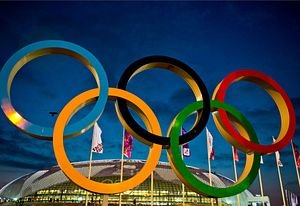This year’s Olympic Games in Rio have been enthralling. There’s Yusra Mardini, the 18-year-old swimmer and member of the first-ever refugee team who saved 18 lives by swimming a sinking boat of refugees ashore. Or Korean epee fencer Park Sang-young, who was one point from defeat but closed the gap with a furious series of attacks after repeatedly telling himself, “I can do this.” Or Nikki Hamblin, awarded the rare Pierre de Coubertin medal after helping a fellow runner back to her feet.
Then there’s China, whose athletes have done well in boxing, swimming, shooting, badminton, athletics, table tennis, weightlifting, and especially diving. But China’s real achievement this year is an evolution in its attitude toward the Games themselves.
“China used to be driven by sports patriotism, but they have changed,” writes Choi Min-woo, deputy cultural news editor of the JoongAng Ilbo. “For the first time in 16 years, China did not win any gold medals on the first day of the Olympics. But the Xinhua News Agency reported that Chinese athletes who remained composed were more valuable than news of a gold medal.”
A step in the right direction, to be sure, although stressing composure is also a warning against embarrassing the motherland by repeating Wu Jingbiao’s meltdown at the 2012 London Olympics, during which he wept in an interview after winning silver and said, “I am not worthy of the motherland! I was a disgrace to the Chinese weightlifting team, a disgrace to everyone who cares about me! Sorry, everyone!”
He then doubled over in misery, straightened himself, looked upward and screamed. Given the incredible pressure China has traditionally placed on winning gold, Wu’s reaction is understandable. Writing for Xinhua at the time, Sun Yongjin argued that what matters is doing one’s best, and that China must remove its “gold first” cancer.
“Gold is precious,” Sun wrote, “but results are not the only measure of athletic performance and value.”
But the Global Times, Beijing’s editorial mouthpiece, begged to differ:
“Estimates for China’s gold medal tally at the London Olympic Games have occupied media headlines and inspired many Chinese. However, this enthusiasm is not shared by carpers on some of China’s online forums and Weibo. They argue that the number of gold medals has nothing to do with people’s livelihoods and health, and ask why the government doesn’t invest more in livelihood projects.”
The answer, the piece said, is because gold “is a precious element that unites a nation.”
Writing about Wu’s meltdown, Adam Minter said that China has been gold-obsessed ever since its first post-1952 Games, the 1984 Los Angeles Olympics, and suggested another reason athletes like Wu may be so emotional: fear. When Zhu Jianhua failed to take gold in the high jump in 1984, Minter wrote, “back in Shanghai, an angry mob smashed the windows of his home.”
There’s a silver lining. As Minter pointed, public sentiment has changed since then, with only state-run media really criticizing athletes who fail to win gold. When Yunnan province’s City Times called weightlifter Zhou Jun a “disgrace” who brought “shame” on China, for instance, many netizens came to her defense, blaming the government for sending her to the Games before she was ready.
This year, after the 20-year-old swimmer Fu Yuanhui put in a personal best to claim a spot in the finals in the women’s 100-meter backstroke, her post-match reaction to hearing her time won the hearts of many. Although if you watch the video, you can hear the reporter tell a joyful Fu to “calm down.” Fu would later claim a bronze medal in the finals.
This clip, along with Fu’s many other adorable antics, and her willingness to break a long-standing taboo by openly discussing her menstrual period, have made her an Olympic star. The fact that she’s overjoyed to win bronze, or that she’s so popular back home, indicates a sea change in how Chinese view the Games. As Jiayang Fan writes this month in her piece “Fu Yuanhui Teaches China to Relax at the Olympics,” Fu has wowed commentators with just how much fun she is having.
“In the past,” Fan writes, “fun had seemed like a selfish pursuit, the unpatriotic trivialization of a nation’s striving,” but Fu’s “capacity to speak extemporaneously, rather than recite the agenda of the motherland, is something new” and her “demeanor suggests that swimming, for her, is not all about strengthening the race or the nation.”
It’s a big deal that China is finally approaching a place where strengthening its race, or proving its superiority, isn’t a central theme. Or that we can go from Wu to Fu in four short years. This is a China that’s comfortable with losing, because win or lose, it’s a China that is, as commentator Dou Wentao recently remarked, comfortable with itself.

































